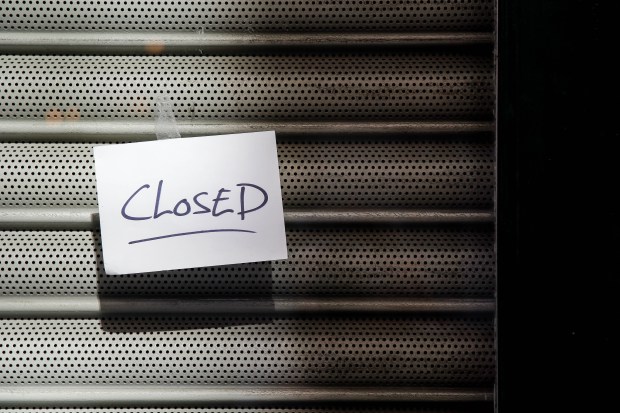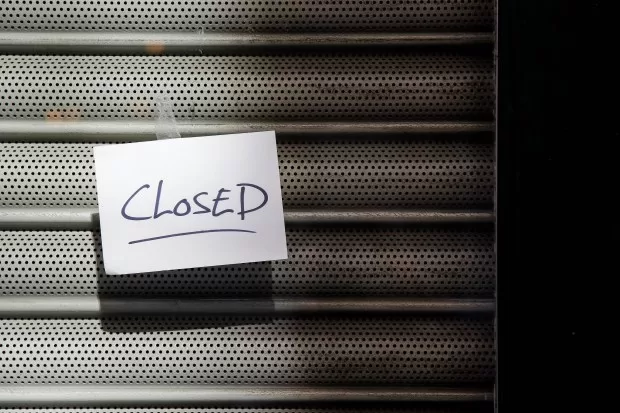A HUGE DIY store with 230 branches is set to close its doors in a few weeks – ending its 30 year legacy.
Staff at Sheffield‘s Wickes on Moore Street said it will shut for good on August 16 as shoppers sobbed it would “become a ghost town”.
But they claim they the closure is a result of Sheffield’s Clean Air Zone that was rolled out in February 2023.
A member of staff at Wickes told The Star: “To be honest, when the Clean Air Zone started, business dropped like a stone.
“We’re sat right in the middle of it, and white vans traders don’t want to pay £10 a visit.
“It’s been very difficult to keep it going.
Read more on store closures
“The store has been here 30 years, I think. I think people will miss us.”
The Clean Air Zone charges older diesel vans and taxis £10-a-day to travel on, or within, the inner ring road.
Older coaches, buses and lorries are charged £50.
Shoppers were devastated by the news, taking their frustration to Facebook.
One person wrote: “It’s a shame to see it go. The clean air zone must of had an impact, whether it’s all down to that is anyone’s guess.”
Another added: ” It’s gonna be weird walking in to town and back home and not seeing Wickes there.”
A third replied: “End of an era!!”
While a fourth commented: “I went here for all my gear every day.”
Meanwhile, one user said: “Sheffield will become a ghost town.”
It comes after shoppers were left devastated after their beloved gift store announced it will close its doors after five decades in business.
The popular J Menzies of Callander revealed its final day open as it will host a major sale for its loyal customers who sobbed “it’s the end of an era”.
The much-loved shop on Main Street confirmed its shocking closure on Thursday.
Meanwhile, iconic DIY store Dockerills in Church Street, Brighton, said the business will shut its doors forever in September this year.
Brighton’s Dockerill is the last branch of the family business that has been operating since the business started in 1915 by Walter Dockerill.
The Church Street unit was bought by the Dockerill family in the ’70s and went on to become a staple stop for locals.
In a statement, Dockerills said: “It is with a heavy heart that we announce the closure of our Dockerills high street store at the end of September.
“The business has been a part of the North Laine community for over 100 years and was established in Regent House, Church Street in the mid-70s.”
Why are retailers closing shops?

EMPTY shops have become an eyesore on many British high streets and are often symbolic of a town centre’s decline.
The Sun’s business editor Ashley Armstrong explains why so many retailers are shutting their doors.
In many cases, retailers are shutting stores because they are no longer the money makers they once were because of the rise of online shopping.
Falling store sales and rising staff costs have made it even more expensive for shops to stay open. In some cases, retailers are shutting a store and reopening a new shop at the other end of a high street to reflect how a town has changed.
The problem is that when a big shop closes, footfall falls across the local high street, which puts more shops at risk of closing.
Retail parks are increasingly popular with shoppers, who want to be able to get easy, free parking at a time when local councils have hiked parking charges in towns.
Many retailers including Next and Marks & Spencer have been shutting stores on the high street and taking bigger stores in better-performing retail parks instead.
Boss Stuart Machin recently said that when it relocated a tired store in Chesterfield to a new big store in a retail park half a mile away, its sales in the area rose by 103 per cent.
In some cases, stores have been shut when a retailer goes bust, as in the case of Wilko, Debenhams Topshop, Dorothy Perkins and Paperchase to name a few.
What’s increasingly common is when a chain goes bust a rival retailer or private equity firm snaps up the intellectual property rights so they can own the brand and sell it online.
They may go on to open a handful of stores if there is customer demand, but there are rarely ever as many stores or in the same places.
